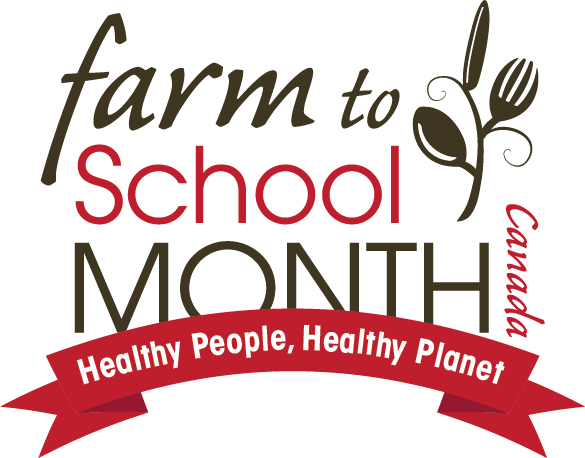 The 2019 Farm to School Month celebration aimed to engage and empower children and youth to learn about actions they can take to promote the health of both people and planet.
The 2019 Farm to School Month celebration aimed to engage and empower children and youth to learn about actions they can take to promote the health of both people and planet. Throughout October we shared resources and tips for incorporating healthy and environmentally sustainable practices into school and campus food activities. Check out the list of Healthy People, Healthy Planet resources here, because this effort is one that is important 12 months, and 365 days of the year.
Mount Pearl, NL
Our school is always looking for new ways to improve both the environment and to help students make healthy/positive choices. We have a school garden and have just started an indoor hydroponic garden as well as composting this year with success. So, to take on a new activity was a no no-brainer! I teach my science class home economics as well, which made the Food Action Kit activity of becoming a food innovator the perfect fit. The class discussed ways of saving food and then got down to business of saving the rinds off our delicious watermelon snack! Students not only got practical experience in the kitchen, but also got to see how science is involved and how we can change even the most [seemingly] inedible food into something good!
Photo credit: St. Peter’s Junior High
Masset, BC
We are hosting 20 salad bars that are aiming for locally grown foods that require minimal packaging. Kids choose the amount and type of food they want which minimizes waste. We will also revitalize our compost and move it into our garden beds to teach about the cycles of compost and soil development.
Photo credit: Sarah Stevenson
Miramichi, NB
Photo: Students enjoying fish cakes made from the leftovers of our Bass & Potato Lunch
Our newly formed Green Team prepared a bass and potato dinner with chow-chow* and our students helped to prepare with green tomatoes from our school garden. Our school is located on the bank of the Miramichi River and in the spring all students were given the chance to try their hand at bass fishing. Many students had never eaten bass or chow-chow and this was a wonderful opportunity. We also had fish cakes the following day to eat up the left overs. Again many students had never eaten fish cakes. Our middle school student body of 83 were invited to share lunch with us and, of that, 25 participated.
*Chow-chow is a type of relish made with green tomatoes
Photo credit: Mrs. Murphy
*Winners of Farm to School month prizes are drawn at random from the list of registrants.
Oshawa, ON
Last year, our school received a seed grant of $1,500 from Farm to Cafeteria Canada. Immediately, this money was put to good use, as our Garden Club and Grade 3 students began growing sprouts for consumption during the cold winter months. With this infusion of cash, we bought new tools, a bunch of bamboo pots, vegetable seeds, trays, a germination heat mat, a grow light, potting soil, lumber, hand tools, and cooking equipment.

Did you know, about ONE THIRD of all food produced globally is wasted? Food that could otherwise provide nourishment often ends up in landfills, producing greenhouse gases and becoming a major contributor to climate change.
That’s why, as part of the 2019 Farm to School Month celebrations, Farm to Cafeteria Canada was pleased to partner with the Commission for Environmental Cooperation (CEC), creators of the Food Matters Action Kit, in hosting a…
The Food Matters Action Kit is loaded with informative resources and hands-on, creative activities to inspire kids of all ages to prevent food waste at home, at school and in the community. Activities in the kit are designed for youth across North America, from ages 5 to 25, to start making a positive difference right now to prevent food waste!
To participate, schools were asked share an activity that their r class, school or campus group did to prevent and reduce food waste during Farm to School Month (October).

Our partners at the US National Farm to School Network also celebrated Farm to School Month with us this October. As part of the US celebrations they sought to feature the work of their diverse partners and we were thrilled to be included among this group with a write up on Farm to School in Canada and the similarities and differences in our approaches! A big thanks for the shout-out!
The Canadian Context
Founded in 2011, Farm to Cafeteria Canada(F2CC) is a pan-Canadian organization that was formed to work with partners across Canada to educate, build capacity, strengthen partnerships, and influence policy to bring local, healthy, and sustainable foods into all public institutions.
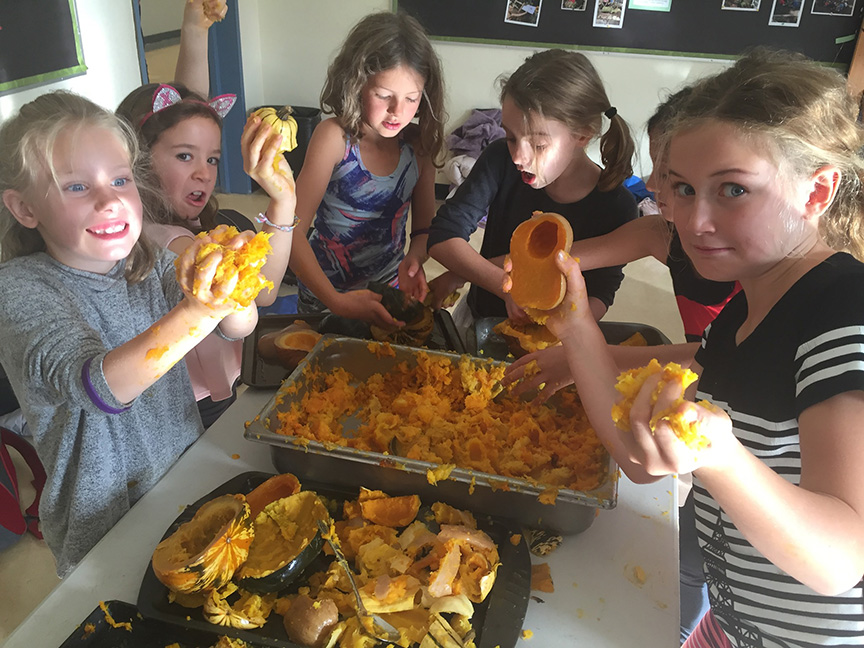
At Salt Spring Elementary (SSE), BC, we celebrated National Farm-to-School Month with an all-school, community Harvest Lunch. Here’s how it happened.
Read More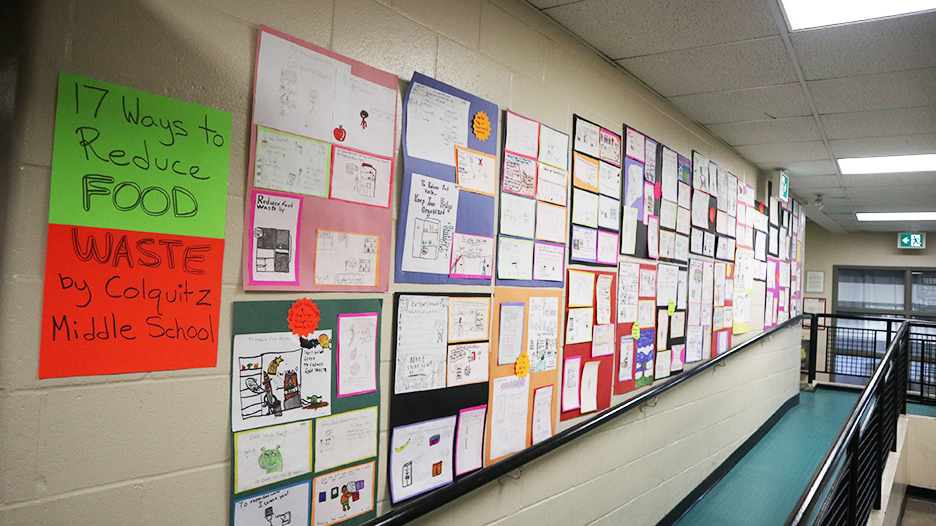
Colquitz Middle School in Victoria BC took the Zero Food Waste challenge seriously during F2S Month. The students created a creative group “art-attack.” The activity took place at the GR Pearkes Recreation Centre and under 17 categories, the kids tried to respond ‘how to reduce food waste?’ In total, they made 41 posters with approximately six infomercials on each and over 240 different messages! The group “art attack” was put up close to the Flip Side teen centre and reception area for several days.
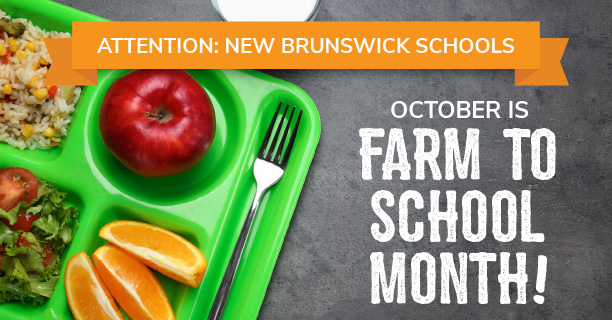
New Brunswick Farm to School Month info sheets were circulated out to NB Schools through the school Districts, Public Health dietitians and Healthy Learner nurses.
Read More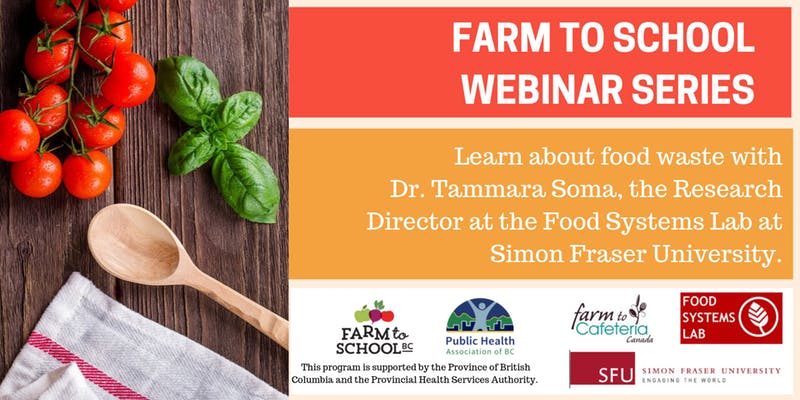
Hosted on October 24, 2019 as part of Farm to School Month, this webinar explores qualities of ‘viral’ campaigns that may be applied to spark a youth movement to tackle food waste.
Presented by Dr Tammara Soma, contributor on the 2019 Farm to School Month feature resource, Food Matters Action Toolkit. Available in English only.
Read More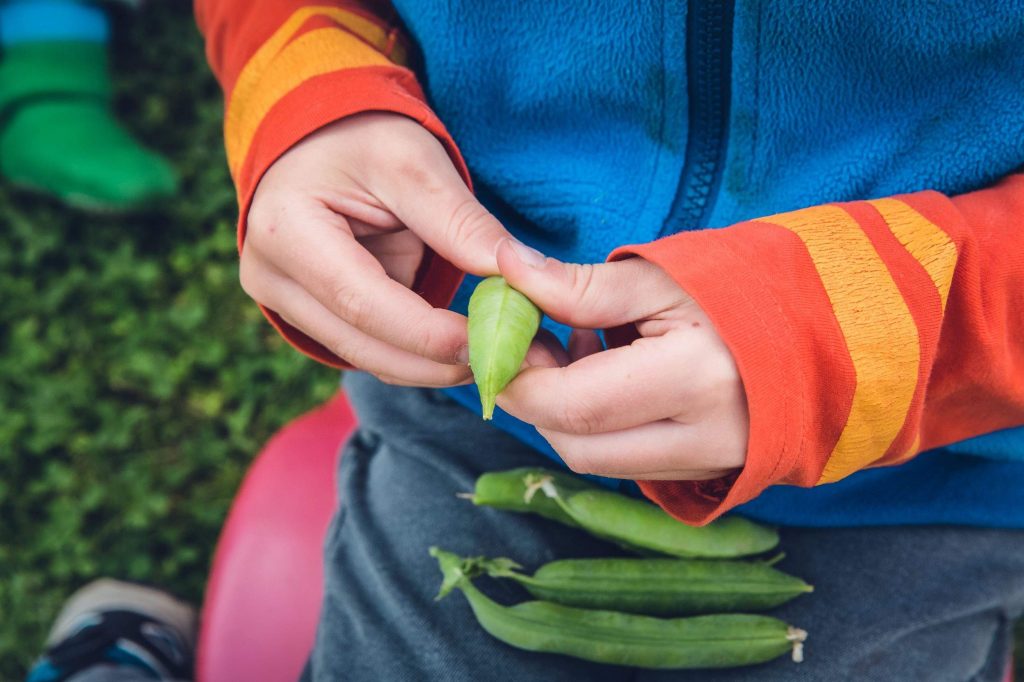
100° est fier de s’associer à Équiterre pour vous présenter un webinaire éducatif animé par Murielle Vrins, chargée de projets en alimentation « Alimentation locale et durable : des outils pour sensibiliser les jeunes. » D’une durée de 45 minutes, ce webinaire est offert gratuitement à tous les membres de la communauté 100° intéressés par l’éducation et la sensibilisation à l’alimentation d’ici.
Read MoreMultilingual WordPress with WPML